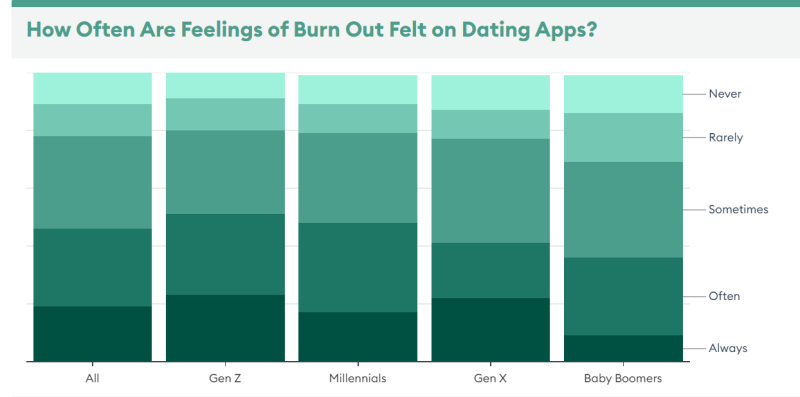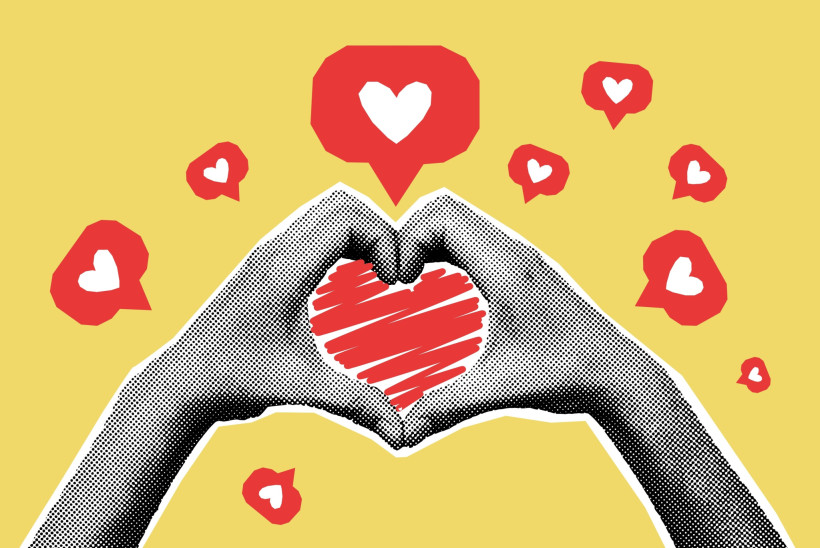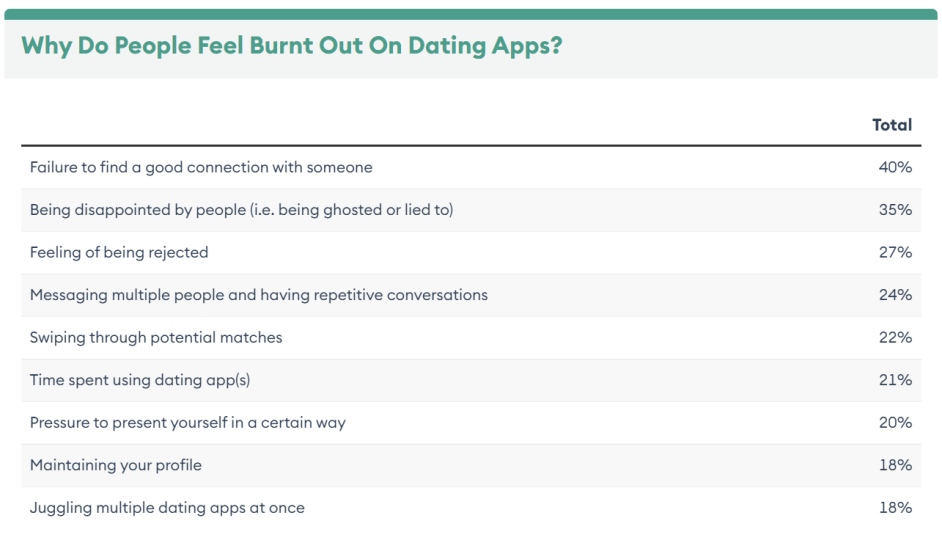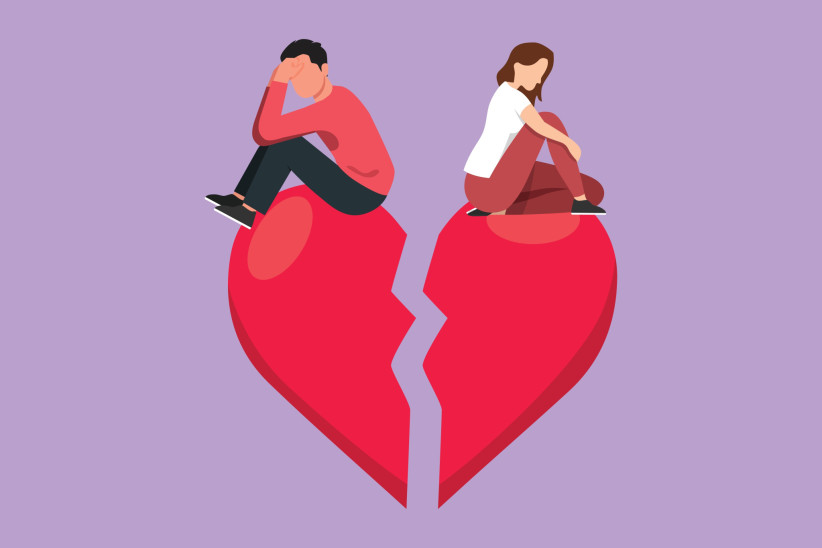New scientific study observes the phenomenon called “dating burnout” or “Tinder fatigue”, a feeling of exhaustion from the many romantic disappointments
By Marialenis Tsouvelekidis – Sophia Tastsidis
Love in the age of dating apps and social media, or in the novel, love in the age of cholera. Of course, we can’t compare these apps to any…disease. It is, however, now a condition, under which or even alongside which we live and form relationships. Thus, the question arises: do the new technological tools bring us closer together, or ultimately drive us further apart?
The skai.gr he went out into the streets of Athens and asked people of various ages what they thought. The majority of respondents, who came from all age groups, seem to prefer face-to-face contact rather than dating apps, although they do agree that it’s easier to meet through apps now that face-to-face flirting has died out. .
Some reported that dating apps made them feel like they were shopping at Shein, while others pointed out that although they have used dating apps they couldn’t find what we call real connection. Others noted the ease of the apps, “when I don’t like someone I move on». In addition, there were reports of fear that someone might deceive them, lie about who they are or have bad intentions (catfishing). However, it was common to admit that many have turned to dating apps.
See in detail what they told us:
How many people use Tinder worldwide
According to the World Population Review, Tinder’s monthly active users are 75 million worldwide. Users in more than 197 countries use the app, with the US at the top with 7.8 million users, followed by the UK with 5 million users.
Tinder is the most popular dating app with 6.1 million users downloaded worldwide in June 2024 alone, according to Statista 2024.
A survey conducted between March 27 and April 2024 of 1,000 Americans who use dating apps, showed that Tinder is the most popular app, with 66% coming from GenZ.
How modern people feel about using apps
An overwhelming number of respondents to the survey, conducted between March 27 and April 2024, report that they feel exhausted from dating apps. When asked how often they felt emotionally, mentally or physically drained by dating apps, a total of 78% experience this feeling sometimes, often, or always.
“Younger generations feel this burnout more, according to the research, which may be due to how common it is for these age groups to use dating apps or communicate digitallysaid Judy Ho, Ph.D., a triple-board certified and licensed clinical and forensic neuropsychologist and member of the Forbes Health Advisory Board based in Manhattan Beach, California.
The analysis of those who feel burned out by dating apps sometimes, often or always includes:
- Millennials (80%)
- Gen Z (79%)
- Gen X (78%)
- Baby Boomers (70%)
What is dating burnout?
According to a new scientific study the phenomenon is observed, “dating burnout” or “Tinder fatigue(Tinder Exhaustion). This is a common phenomenon described in the modern dating scene, which offers many opportunities for acquaintances in order to find a partner. In reality, however, it has been documented to have the opposite effect, with modern people far more likely to end up single despite plenty of dating opportunities.
Interestingly, women experience more intense burn out compared to men, with 80% to report feeling some level of burnout compared to 74% of men.
“It is said that women aim for emotional connection and men aim for physical connection,” explains Rufus Tony Spann, Ph.D. certified air therapist and member of the Forbes Health Advisory Board. “Women may be more exhausted because of the emotional connection, which could have a heavier impact than men’s physical connection. I guess meeting different people and connecting with them on an emotional level could be seen as a deeper connection and it’s harder to recover and come to terms with the fact that a date or a relationship that didn’t work out.”
How does the “digitalization” of love affect us psychologically?
We put this specific question to clinical psychologist-psychotherapist Natalie Veltsi, who told us:
“It affects it in many ways. Because utopian beliefs are created either about our achievements or about our self-image, higher expectations arise, thus bringing about greater disappointments in our outer life. In other words, one may have created a inflated self-image and by extension a false self-confidence about his image. Having a lot of acceptance on social media, in the outside life he is disappointed. This happens because through social media, more self-confidence is built on the surface, not actually. causes more disappointment in the outer life.
Also, people who regularly use dating apps I see are disappointed much more often with dating. They will complain much more often that ‘that meeting didn’t work out’. This happens because the criteria that the other person ‘must’ meet in order to go on a date are purely appearance and a dialogue. What both parties ignore is the natural attraction between two people when they meet outside. Once they have bypassed the existence of physical attraction, it makes a lot of sense to ‘not go anywhere’ because they are not naturally attracted to each other. So maybe there’s nothing else they’re missing, or too much, but what’s definitely missing is physical attraction.”
Failure to connect, frustration and rejection are among the main causes of burnout
When looking at why people say they experience these feelings, the biggest reason is the inability to find a good relationship with someone else, with 40% of all respondents to report something similar. The causes are followed by feeling frustrated by people (35%), feeling rejected (27%), repeating the same conversations (24%), swiping (22%) and simply spending time using apps (21 %).
A fifth of respondents pointed to pressure to appear a certain way to others, and 18% of respondents felt tired of maintaining profiles and using multiple dating apps at the same time.
Dr. Spann stated that 41% of his clients feel hurt by so-called ghosting, that sudden disappearance, without any explanation and without any warning sign, that some adopt. The term ghosting comes from the noun ghost which in Greek translates as ghost and is related to the sudden and unjustified interruption of communication of a person.
Right after ghosting, among the main reasons someone feels hurt, 38% mentioned catfishing, that is, many have been deceived by dating apps.
Do dating apps really help?
To the question of whether these tools ultimately help us find the connection we are looking for and need, the Natalie Veltsi explains:
“They only help with timing, but they bring about everything else I mentioned. They end up creating a vicious cycle because they give the illusion that I don’t have to flirt in person, so I subconsciously motivate myself to try to flirt when he’s out and about for any reason even when going to work. All this makes me end up being a lot more alone, limiting flirting and dating mostly to apps.”
Ultimately, are we getting closer or further apart with the help of technology?
With the help of technology, we are more alone than ever, as we come much closer with our mobile phones and not with people. Let’s add that not only are we left more alone, but when we are with company we are distanced as technology comes between us even when there is physical presence.
Source :Skai
I am Terrance Carlson, author at News Bulletin 247. I mostly cover technology news and I have been working in this field for a long time. I have a lot of experience and I am highly knowledgeable in this area. I am a very reliable source of information and I always make sure to provide accurate news to my readers.














